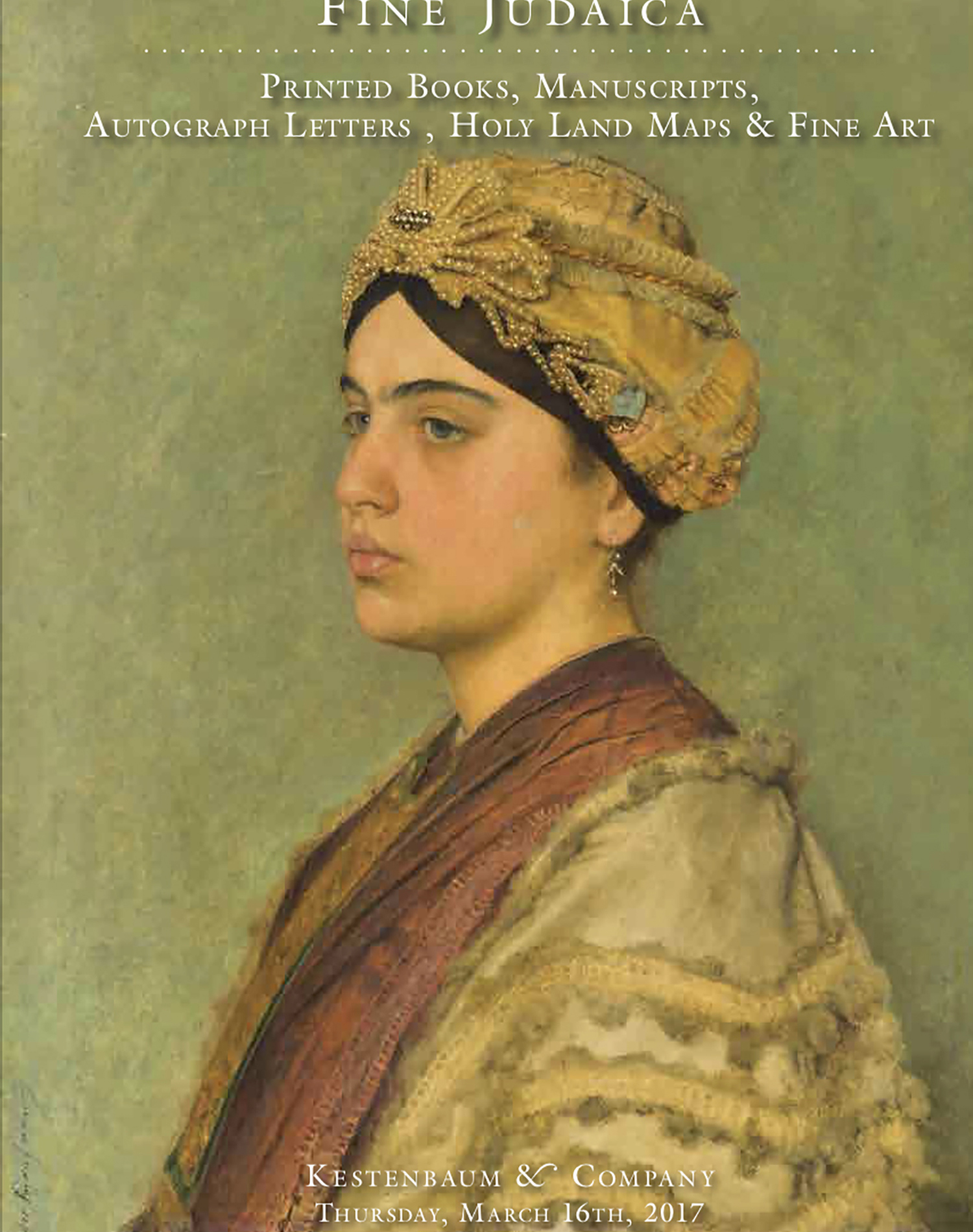(BIBLE.

AUCTION 72 |
Thursday, March 16th,
2017 at 1:00
Fine Judaica: Printed Books, Manuscripts, Autograph Letters, Holy Land Maps & Fine Art
Lot 64
(BIBLE.
Genoa: Petrus Paulus Porrus for Nicolo Giustiniani Paulo 1516
Est: $12,000 - $18,000
PRICE REALIZED $26,000
<<The First Polyglot Bible. The Second Book Printed in Arabic. The Only Book Printed at Genoa in the First Quarter of the Sixteenth Century. With an Early Reference to Christopher Columbus’s Discovery of America.>>
The learned Dominican Agostino Giustiniani, Bishop of Nebbio in Corsica, and later Professor of Hebrew at the College de France, devoted himself to the study of Oriental languages. He spared no expense in the preparation of this first polyglot edition of the Book of Psalms which was popular with churchmen of the age who sought Christological references in its lyrical, prophetic poetry. He summoned the Milanese printer Pietro Paulo Porro, a master-printer at Turin, to Genoa, to undertake the printing of this work.
The “Scholia” commentary reveals considerable scholarship. Of particular interest are comments to Psalm 19, verse 4: “Their line has gone out through all the earth and their words to the end of the world.” On this verse the bishop notes: “In our own times, by his wonderful daring, Christopher Columbus, the Genoese, has discovered almost another world and a new congregation of Christians. In truth, as Columbus often maintained, God chose him as the instrument for the fulfillment of this prophecy. Thus I deem it not improper here to refer to his life…” The lengthy note subsequently contains previously unpublished information on Columbus’s life and second voyage. Columbus died in 1506, a mere ten years before the publication of the Psalter.
Additional scholarly notes regarding the commentary available upon request.
